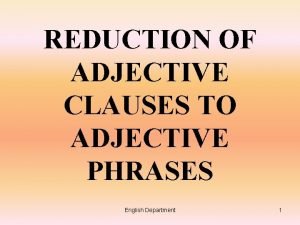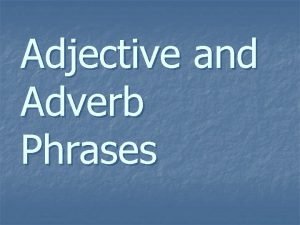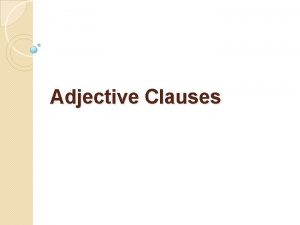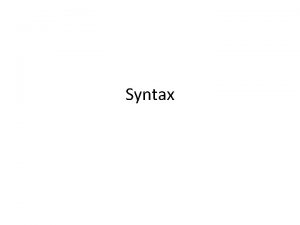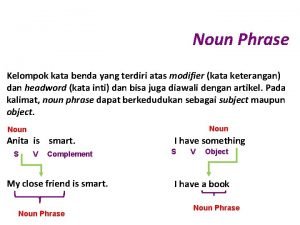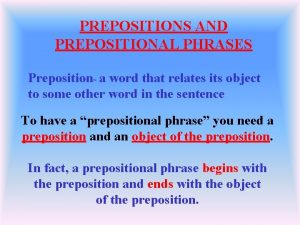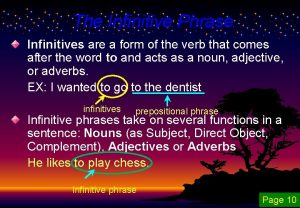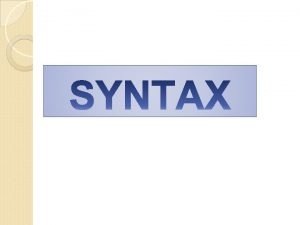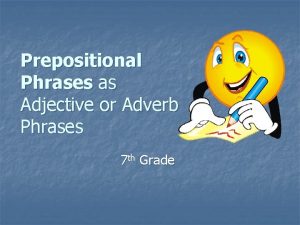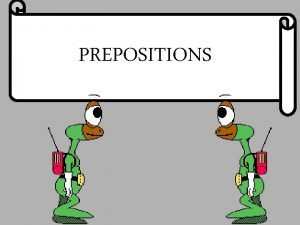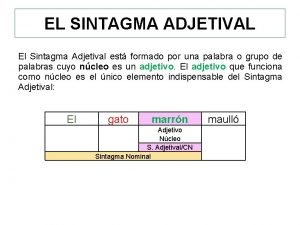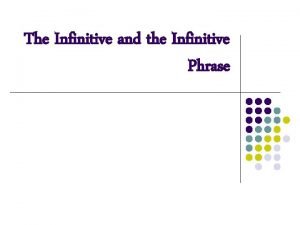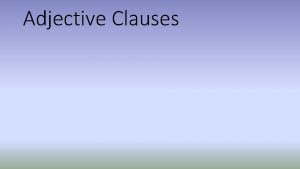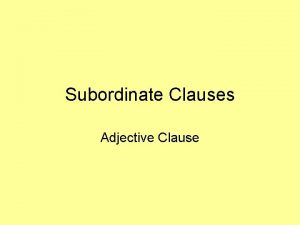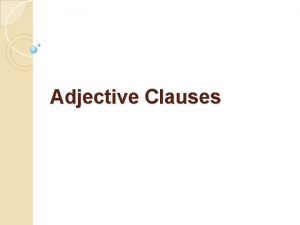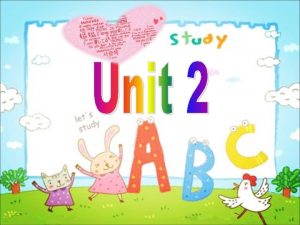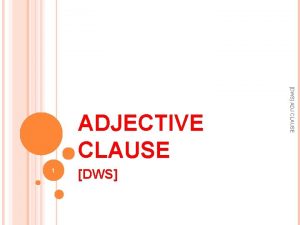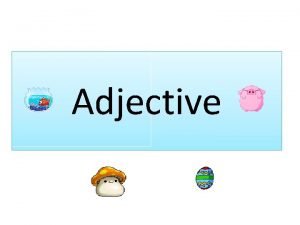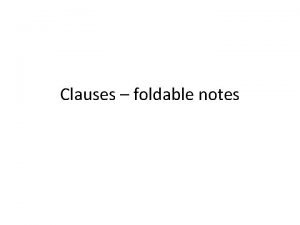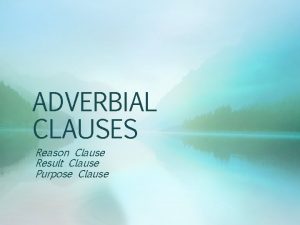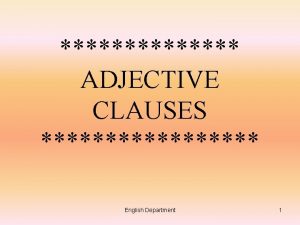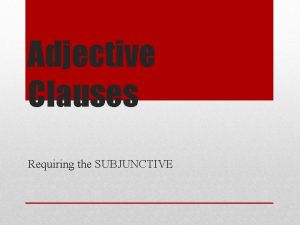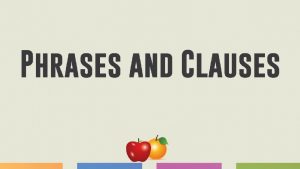GrammarMechanics CLAUSES Adjective Clauses Q Phrase or Clause


















- Slides: 18

Grammar/Mechanics CLAUSES

Adjective Clauses

Q: Phrase or Clause? 1. Being a school teacher 2. I will eat sweets 3. Startled by the scene 4. Because he is clever 5. who is sick 6. To sing a song 7. that/who is studying hard

Types of Clauses 1. The boy is sick. 2. The boy who is sick needs medicine. Simple sentence Compound sentence • • The boy who is sick • Dependent • (Subordinate Clause) • Although the sentence contain a subject and a verb, the sentence doesn’thave a complete thought Independent Can make sense on its own Complete • • The boy needs medicine Main Clause • The sentence makes sense

How can I identify Adjective Clauses? �Example: �The girl who is in our class loves dancing


Adverbs �Identify the adverb in the following sentences: �The boy worked hard �The girl is extremely beautiful �I have studied too well �The boys played in the house �The girl lived where her father used to live


Adverb or Preposition? �The plane circled above the field �Please go inside soon �Please go inside the house soon


The Adverb Clause p. 447 �He will leave when he is ready �You may sit wherever you wish �When winter sets in, many animals hibernate �Happy because he had scored an A, Tony hurried home. �Gabriel can type faster than I can.


Relative Pronouns# Subordinating Conjunctions Adjective Clauses=Relative Pronouns Adverb Clauses=Subordinating Conjunctions � After -Before � Since-for � that is played � which is singing � who are happy � whom I like � whose desk is next to me � When-whenever � Where-wherever � If –whether � While-although-though � Because � As-as if-as soon as-as long as-as though � So-so that � Unless-until-than

The Noun Clause �Identify the noun clauses in the following: 1. 2. 3. 4. 5. That they were angry was obvious to the others Three Dollars was what Daniel offered for the trinket Antony and Peter remembered who he was The hostess gives whoever enters a menu Eager to know the speaker, we listened to whatever he said


Common Introductory Words how -that-whatever-when-whether-whichwhoever-why-whomever Remember: Each and every stated above introductory word for noun clauses has a function in the sentence: Example: 1. They do not know what they will do next. (D O) 2. What happened was not their problem. (Subject) 3. Give this pass to whoever enters the house. (Object of Prep) 4. She will show us what she wrote. (Object) 5. This is why they ate their lunch (Predicate nominative)

Class work Home work �P. 449 �P. 450 �Exercise 8(1 -10) �Exercise 9(1 -10) �P. 451 �P. 452 �Exercise 10(1 -10) �Review A(1 -10) �Due : Thursday

Elements of Language �Chapter 12/p. 389 �Chapter 15/p. 438 -454
 Non-restrictive adjective clause
Non-restrictive adjective clause Changing adjective clause to adjective phrase
Changing adjective clause to adjective phrase Adjective phrase and adverb phrase
Adjective phrase and adverb phrase Phrases and its types
Phrases and its types Difference between noun clause and adjective clause
Difference between noun clause and adjective clause The city was beautiful. we spent our vacation there
The city was beautiful. we spent our vacation there Normal and strong adjectives
Normal and strong adjectives Adjective phrase
Adjective phrase Adjective phrase
Adjective phrase Adjective phrase exercise
Adjective phrase exercise Preposition and prepositional phrases
Preposition and prepositional phrases How to find preposition in a sentence
How to find preposition in a sentence Infinitive phrase as adjective
Infinitive phrase as adjective Function of adjectival phrase
Function of adjectival phrase Prepositional phrase as adjective and adverb
Prepositional phrase as adjective and adverb Shows the relationship between words
Shows the relationship between words Adjective phrase
Adjective phrase Que es sintagma adjetival
Que es sintagma adjetival Infinitive phrase
Infinitive phrase

